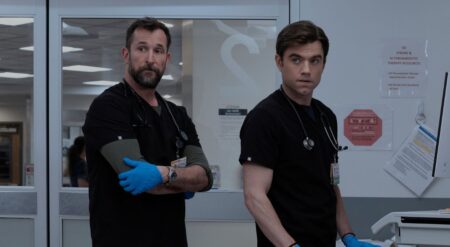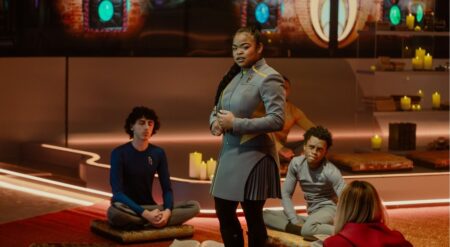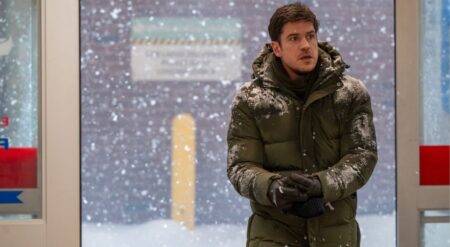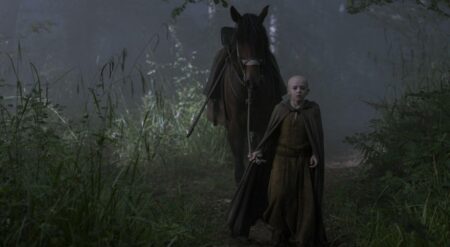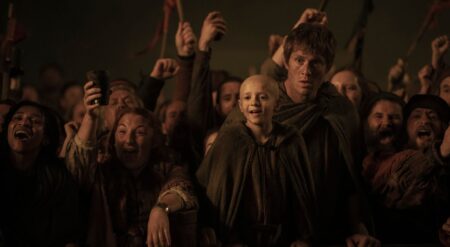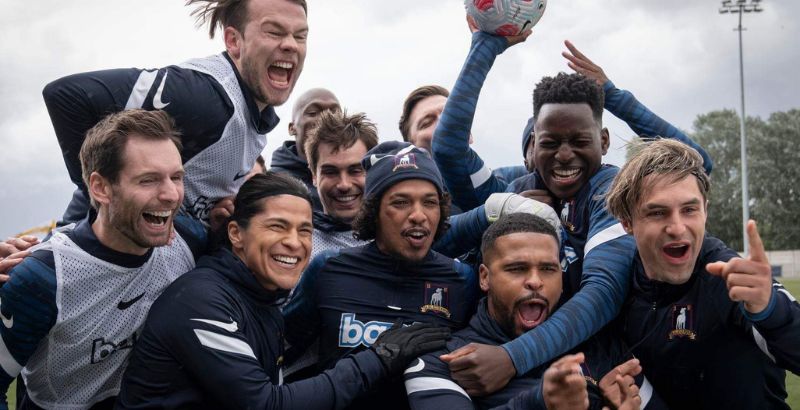
Ted Lasso Season 3 has been a frustrating ride. Despite some definite highs such as series standouts “Sunflowers” and “Mom City,” the Apple TV comedy has bungled storylines as often as they’ve delivered great and well-earned character moments. With an elongated pre-production schedule which pushed the latest season out further than anticipated (at least by viewers) and original co-creator Bill Lawrence not being as involved as he was in the prior two seasons.
The Jason Sudeikis-led third season production suffered from a lack of consistent characterization, forced development, and bloated episodes in terms of story and sheer length. Messy in execution and disappointing on a number of narrative threads that appear as late as the last episode with Phil Dunster’s Jamie and Brett Goldstein’s Roy being momentarily reduced to their characters least favorable elements, Ted Lasso Season 3 never touched the success of its first.
And still, despite all of that, the highs still manage to produce such overwhelming comfort that the anger is more stemmed at what could’ve been rather than what wasn’t. The improbable pacing of Nate’s storyline, and unnecessary plots such as everything to do with Zava and, unfortunately, Keeley’s work and romance with Jack, along with the special episode of the week format are major determinants to a show that in its premier season reigned supreme. The series biggest misstep arrived when it became consumed with it created and adopted by fans: here was a show that promotes kindness, supports mental health awareness, and shines a light on non-toxic masculinity. By buying into itself too seriously, it resulted in a warped, funhouse mirror of itself.
Ted Lasso has always been at its best when it prioritizes the characters first. It’s why the first two seasons were so much stronger, as characters such as Rebecca, Keeley, Roy, and Ted were allowed to grow and change due to the support and influence of one another. Ted was allowed to process his grief and anxiety in season two without ever forfeiting the character’s flaws. It’s always been a wholesome show about individuals trying to better themselves, and Season 3 tried to sand down any remaining rough edges.
The reason episodes such as “Sunflowers” and “Mom City” excel and why Dunster’s Jamie Tartt has become the unquestionable MVP of the season is because they still manage to focus on characters who have been shown to put in the work. It’s why his relationship with Keeley and Roy is so special in “Mom City” because we’ve seen all of the different paths he’s taken to get to the point where he can lean on both of them with the two in question returning the favor.
There’s been plenty of humor left in the series, with actors such as Brendan Hunt and James Lance getting to develop their characters further. Meanwhile, actors such as Toheeb Jimoh are given one episode to shine before being shafted into background noise, despite holding a greater space in season two and earning an Emmy nomination for his efforts.
Hannah Waddingham’s Rebecca is given the happy ending she deserves — even if it’s rushed and again, forever, focused on romance — but her storyline has long been adrift after the closure she found in season one. Ted heads back home after getting to bear witness to the effect he had on the team as a whole, in a bittersweet if expected move, following a season where he sat in the backseat to the majority of the story.

Nick Mohammed did the very best he could with a divisive character whose journey needed to prioritize the team he’d abandoned rather than a romantic partner with no discernible personality who fed him his development. And, as mentioned, Dunster delivered the best performance of the season, and is the only actor who, come a time, deserves Emmy recognition from the show.
The series, along with wringing out laughs, manages to draw out some tears too, as saccharine sweet as it’s always been. They’re not all completely earned, but these characters for all their clumsily written and/or forgotten plotlines, are lovable. Excessively charismatic, the team itself will be missed, and it’s a shame the series didn’t spend more time in the locker room itself or on the pitch, considering the biggest moments of triumph appear there and offer some of the most swelling sequences of the season.
Ted Lasso Season 3 will never be remembered as the best version of the series, no matter a standout episode or performance. A serviceable, often agitating, final season, it’s a decent enough bow on a series that’s brought comfort to so many, but it deserved better. And still — and still — the level of escapism it allowed is mighty. There will forever be rightful hang-ups over how the show ended and the way in which certain characters were written for the sake of a given joke. The hope is that the best moments are able to at times outshine the worst.
Ted Lasso Season 3 is available now on Apple TV+
Ted Lasso Season 3
-
Rating - 6.5/106.5/10
TL;DR
Ted Lasso Season 3 will never be remembered as the best version of the series, no matter a standout episode or performance. A serviceable, often agitating, final season, it’s a decent enough bow on a series that’s brought comfort to so many, but it deserved better.

